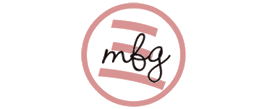I was lucky to have been pregnant for nine months. And lucky to deliver a healthy babe. Prior to that, I spent two years trying to get pregnant, having two ruptured ectopics and a miscarriage.
With my history, I always knew that a successful pregnancy would end in a c-section. A natural birth would risk re-rupture and re-things-I-didn’t-want-to-go-thru-again. I didn’t care how the baby came out as long as I didn’t die in the process. It was a non-choice based on surviving pregnancy.
In my own naive excitement of being pregnant, I started casually mentioning “that I was scheduled”. It only took a few conversations to realize something was wrong with me. Each time I mentioned my pending c-section, I’d watch a face sadden slightly and ask, “ohhh, but do you have to?” So I’d launch into my medical history to rationalize the choice and receive their blessing.
Why’d I play into this? Why didn’t I just say “what’s with the sad face” and move on?
Choice in pregnancy seems to be assumed. And for many without complication, choosing among options is possible. Having choice in anything is a privilege, not a right. In pregnancy, it is a privilege to get pregnant quickly, to choose to have a natural birth, to have it at home, to have a private room, to use a midwife, to not have an epidural, and on and on. Sadly, when choices are narrowed or are outside the norm, we attach stigma.
The problem with stigma are that so many experiences go unheard. It took my own sharing of my story to finally hear others’ tales of enduring IVF, early labor, emergency c-sections, etc. In my experience, the ‘hearts and rainbows’ choices in pregnancy are the exceptions not the rules.
I’ve since found the same elements of choice and stigma present in my conversations around breastfeeding. My naivety of pregnancy extended to breastfeeding and I just assumed that I’d find the right balance for my child. I certainly read all the glowing literature on breastfeeding. Somehow the literature forgot to mention the challenges.I didn’t understand why, if so amazing, were grocery stores filled with an aisle full of formula. Until my Nestle diaper bag arrived, I didn’t even know what formula looked like.
It didn’t dawn on me until weeks later that it was a bit strange having my child thrust on my breast immediately after surgery, while I was still numb from chest down. This introduction to breastfeeding was not exactly how I thought I’d approach my choice to feeding. A conversation on formula was never offered.
Not surprising that following that introduction, the first weeks of feeding were awful. Save for my sister and Internet bulletin boards, I thought everyone I knew had figured out breastfeeding. It was only before I completely gave up that I started asking friends about their experiences. Insanely, in all but two cases, it didn’t go well. There were stories of low supply, over supply, no supply, baby not latching, medication, and on and on. All reasons beyond their control. Yet, similar to my telling of my c-section, the stories were told hushed tones and were peppered with comments of feeling guilty. The choice to breastfeed is a privilege, but you do what it takes to feed your child.
The beauty of pregnancy and motherhood is in its complexity. If Maslow made a pregnancy hierarchy at its foundation would be “first, survive the pregnancy”. Every other level would denote the privilege of having a choice in how the pregnancy unfolded. By setting arbitrary standards and allowing for the privileged narrative of pregnancy to prevail, we eliminate space to hear the diversity of experiences. In doing so, we limit the richness of the experience as a whole.
